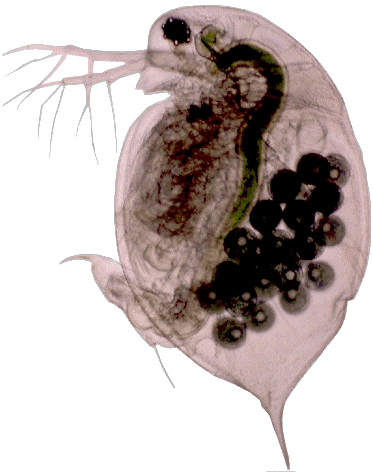Consequences of selective harvesting for maturation
An open master project in the Daphnia Group of EvoFish.
Main content
Law and Grey predicted in 1989 that selective harvesting of mature fish, as was historically the case for northeast Arctic cod (the skrei fishery of Lofoten), would select for delayed maturation and increased yield, whereas unselective fishing would have the opposite consequences. Since then, this prediction has been repeated in several, more complex models (e.g., Ernande et al. 2004, Dunlop et al. 2009). Yet this somewhat unintuitive prediction has not been empirically verified. A practical challenge is that the evolution towards delayed maturation is expected to be quite weak, so demonstrating this with fish is not easy. However, daphnids have a much shorter generation time than fish, making them attractive study organisms to address this question.
This project will be part of the Daphnia activity at EvoFish.
Objective: Test whether harvesting that is directly selective on maturity status leads to theoretically-predicted evolutionary changes in maturation.
Hypothesis: Selective harvesting of mature Daphnia leads to delayed maturation, and unselective or selective harvesting of juvenile Daphnia to earlier maturation.
Methods: Daphnids are raised in replicate populations, subject to one of the harvest treatments. Populations are monitored for their demography, yield is measured, and in the end of the experiment, the clonal composition is determined.
Supervision: Ingrid Wathne and Mikko Heino from EvoFish.
References:
Dunlop, E. S., Baskett, M. L., Heino, M., and Dieckmann, U. 2009. Propensity of marine reserves to reduce the evolutionary effects of fishing in a migratory species. Evolutionary Applications, 2: 371-393.
Ernande, B., Dieckmann, U., and Heino, M. 2004. Adaptive changes in harvested populations: plasticity and evolution of age and size at maturation. Proceedings of the Royal Society B: Biological Sciences, 271: 415-423.
Law, R., and Grey, D. R. 1989. Evolution of yields from populations with age-specific cropping. Evolutionary Ecology, 3: 343-359.
